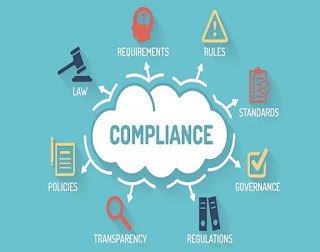4 Reasons To Choose Cyber Security Compliance
With the increase in data breaches, the authorities are formulating new laws to tightly close individuals' information and data. These legal guidelines and regulations often focus on defending sensitive information, such as financial information, protected fitness information (PHI), and individually identifiable information (PII).
 |
| Cyber Security Compliance |
Cyber security policy entails adhering to a variety of rules carried out by a regulatory authority, government, or industry association, to preserve facts confidentiality, integrity, and availability. Controls are derived from several sources, including the CIS, the NIST Cyber security Framework, and ISO 27001.
In this blog, we will take you through the cyber security Compliance benefits.
Significance of Cyber security Compliance Programs
Compliance is wanted in today’s data-driven world to safeguard touchy information. A corporate Compliance application helps standardize, track, and document Compliance necessities comprehensively. Compliance programs additionally streamline the risk identification and remediation processes.
Avoid non-Compliance fines and penalties
As new guidelines and laws are made daily, preserving track will become tough for companies. Failure to comply with the most current laws and rules regulating their company to keep away from severe fines and penalties! Staying up to date on the modern rules approves you to detect, evaluate, and plan for information breaches.
Build customer have faith and brand reputation
When there are information breaches in any firm, the customer’s trust is affected, having a poor impact on the brand’s goodwill. Thus, the employer suffers from exceptional monetary loss and business interruption. Therefore, at some stage in a data breach, a Cyber security incident response diagram is essential for keeping consumer loyalty and company reputation.
Enhanced data management
To comply with information security rules, corporations must hold track of the touchy information they acquire from consumers. They should comprehend how and where they save the data, and access, manage and alter that data efficiently.
These
constraints drive companies to adapt and strengthen their data management
capabilities to support privacy and operational efficiency.



Comments
Post a Comment